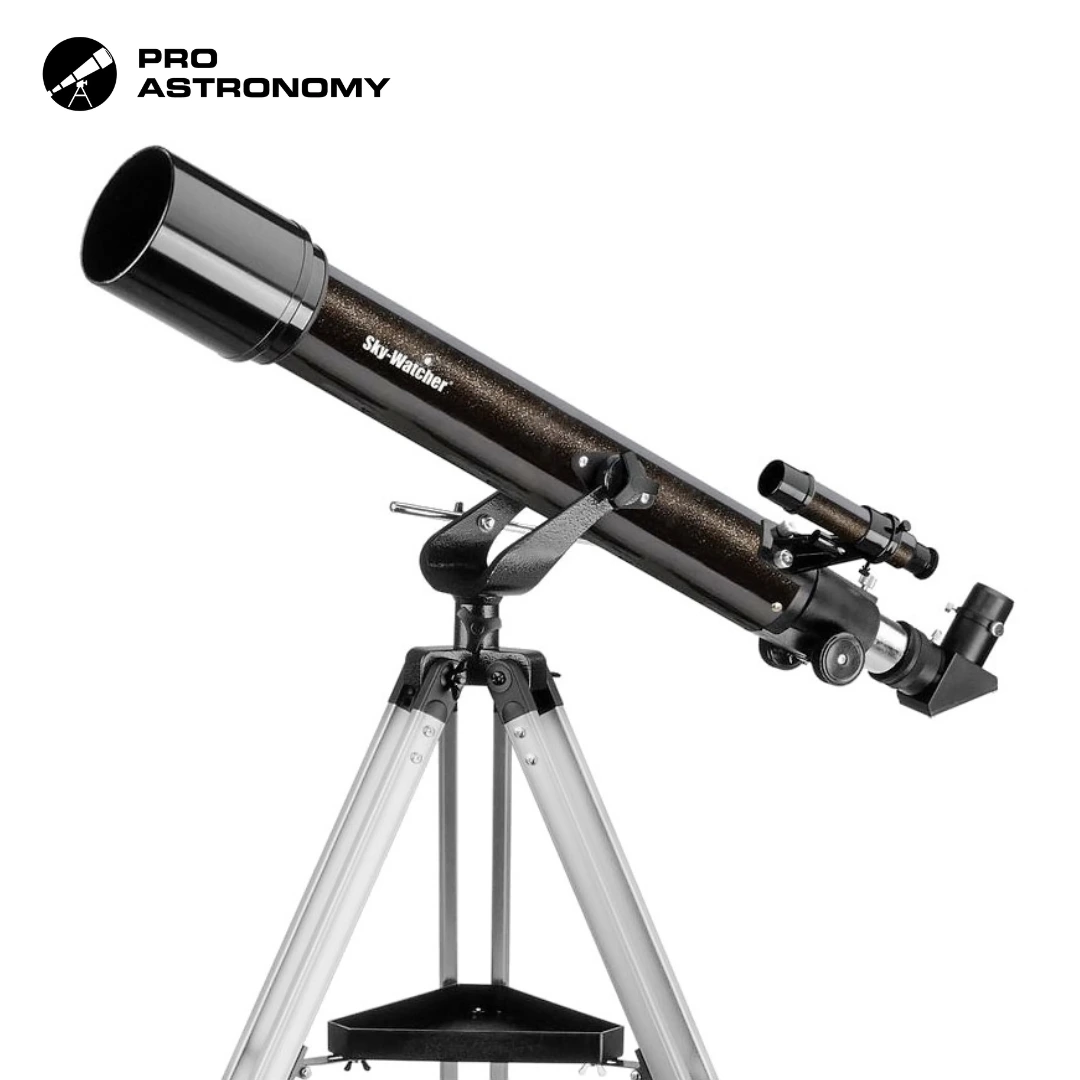What is the Mercury 707?
The Mercury 707 is a classic beginner’s refractor telescope designed for families, older children and adults who want a “proper-looking” telescope on a tripod without getting too technical. With a 70 mm lens and a straightforward alt-azimuth mount, it’s aimed at people who mainly want to enjoy the Moon, planets and brighter deep-sky objects from the garden or on holiday, rather than spend ages learning complex controls.
Unlike toy scopes, the Mercury 707 uses real astronomical optics and a full-height tripod, so it feels like serious equipment while still being friendly for first-timers. It’s a great option if you’re buying for a child who’s outgrown the plastic beginner telescopes, or for someone who’s always fancied a telescope but doesn’t want a huge, heavy setup taking over the house. As a birthday or Christmas present it looks the part, is easy to wrap, and delivers views that will keep new observers interested.
Size, Shape & What to Expect
The Mercury 707 is a slim, long-tube refractor that sits on a lightweight metal tripod. Visually, it’s the archetypal “pirate with a telescope” shape – a straight tube with the eyepiece at the back, so most people instinctively know how to use it. The tripod extends to a comfortable standing height for adults and can be lowered for younger observers; once set up, you can leave it assembled and simply carry it out into the garden in one piece.
The mount is an alt-azimuth design, which means it moves up/down and left/right like a camera on a photo tripod. This makes it easy to aim: you just loosen the controls, point at the Moon or a bright planet, and gently nudge to track as the sky drifts. There’s no polar alignment or counterweights to worry about, so the learning curve is pleasantly shallow.
At the eyepiece, you can expect crisp views of the Moon with plenty of detail, recognisable disks of Jupiter and Saturn (with Saturn’s rings clearly separated from the planet in steady conditions), and pleasing views of bright star clusters and nebulae under darker skies. The 70 mm aperture isn’t huge, but it’s a solid step up from entry-level toy instruments and a good balance between performance, weight and price. Overall, the Mercury 707 is a practical, easy-to-live-with starter telescope that looks like the real thing and rewards regular, casual observing.

